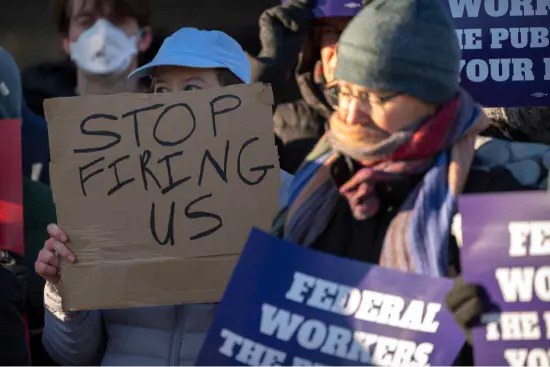October 6, 2025
The White House has warned that mass layoffs of federal employees could occur if Congress fails to resolve the ongoing budget deadlock, raising concerns over delayed services and public health impacts.

The White House has issued a warning that the United States may face mass layoffs of federal employees if Congress does not reach an agreement on the federal budget. With the government already in partial shutdown as of October 1, 2025, hundreds of thousands of workers are either furloughed without pay or working in essential roles without compensation.
The warning underscores the growing severity of the budget impasse, which has sparked nationwide concern over the continuity of government services. Federal agencies responsible for public health, social services, and regulatory oversight could experience further disruption if layoffs proceed. Analysts predict that essential programs may face delays, including food assistance, healthcare administration, and disaster preparedness.
The White House has emphasized that layoffs are a last resort but necessary if lawmakers fail to pass a funding bill. Officials stressed that prolonged uncertainty could lead to economic instability, affecting consumer confidence, local businesses, and federal contractors reliant on timely payments.
President Joe Biden and senior advisors have repeatedly called on Congress to resolve the deadlock, warning that continued inaction could negatively impact millions of Americans. Democrats have framed the situation as a political maneuver by the Republican-controlled House, citing proposed cuts to the Affordable Care Act and other social programs that could disproportionately affect vulnerable populations.
Republicans argue that controlling federal spending is critical, especially as the national debt reaches record levels. They maintain that fiscal restraint and oversight of federal programs are essential to long-term economic stability, even if it results in temporary layoffs.
Economic analysts are warning that if mass layoffs occur, the effects could ripple through the broader US economy. Furloughed workers would reduce spending, affecting retail, travel, and housing markets. Federal contractors may face project delays or cancellations, and public services could slow, creating further uncertainty in healthcare, education, and public safety.
The situation highlights the structural challenges in US governance, where partisan divisions have increasingly impeded the timely approval of federal budgets. Lawmakers are under mounting pressure from citizens, advocacy groups, and the media to find a compromise and prevent further economic and social disruptions.
Observers note that prolonged uncertainty could also affect international confidence in the US, potentially impacting foreign investment and diplomatic credibility. The White House continues to advocate for negotiations to resolve the budget deadlock and avert a potential wave of layoffs.
As the country monitors these developments, the possibility of mass federal employee layoffs serves as a stark reminder of the high stakes involved in political gridlock and the importance of swift legislative action to maintain government stability.